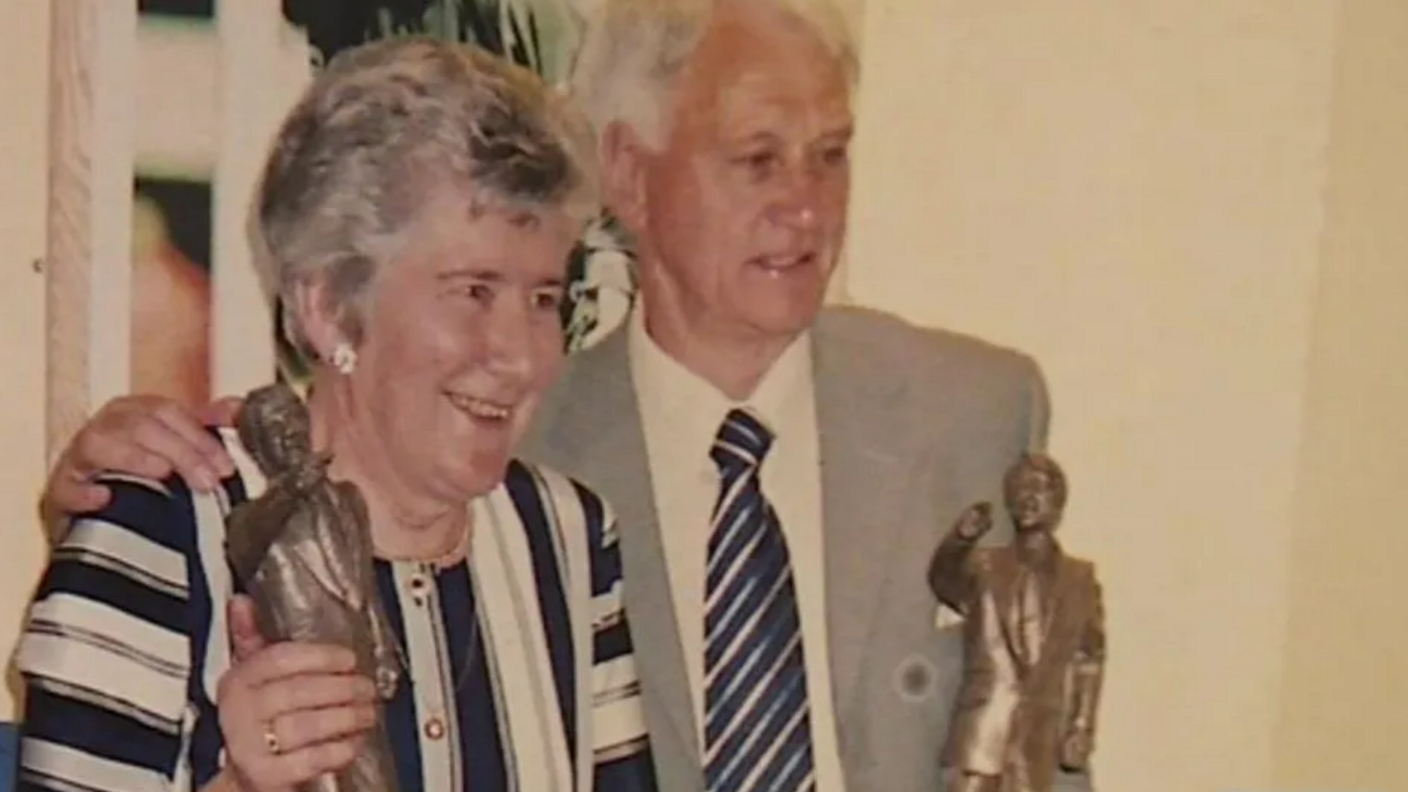What do Premier League footballers eat?
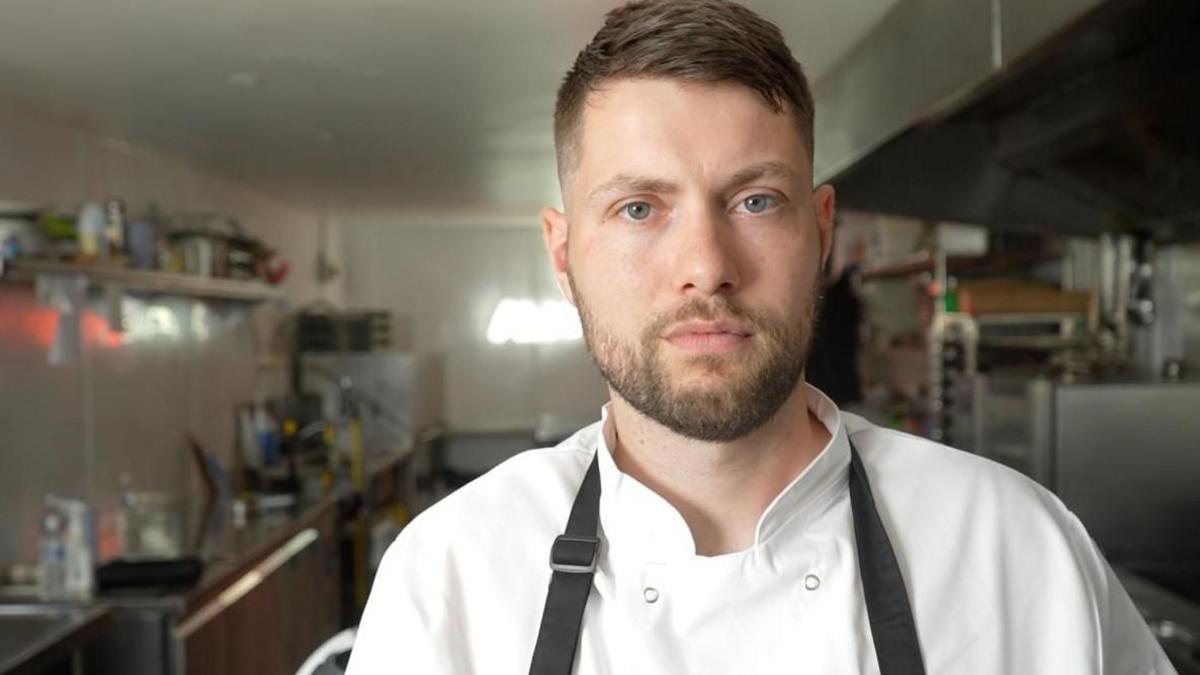
Adam Gooderham says there is a 70% increase in trade before the new season starts
- Published
Preparations for the start of the Premier League are well under way, including in a small industrial unit in Suffolk. There, two chefs and their team are preparing hundreds of meals a week to send to professional footballers to fuel them for this season's league battles. So what exactly does a professional footballer eat?
Adam Gooderham, a former football club chef, began a meal-prep service for players when he was furloughed from his job at Ipswich Town during the Covid pandemic.
What began as cooking a few dozen meals a week for players from his home kitchen quickly turned into delivering hundreds of meals a week to players and clubs across the country.
Now meals from AMG Meal Prep are created in his kitchen in Hollesley, near Woodbridge, and clients include England and Aston Villa striker Ollie Watkins, Ipswich Town's Cameron Burgess and Chelsea's Trevoh Chalobah.
He has also partnered with clubs across the country in the EFL, such as Millwall, Stockport, Chesterfield and a "handful" of Stevenage players.
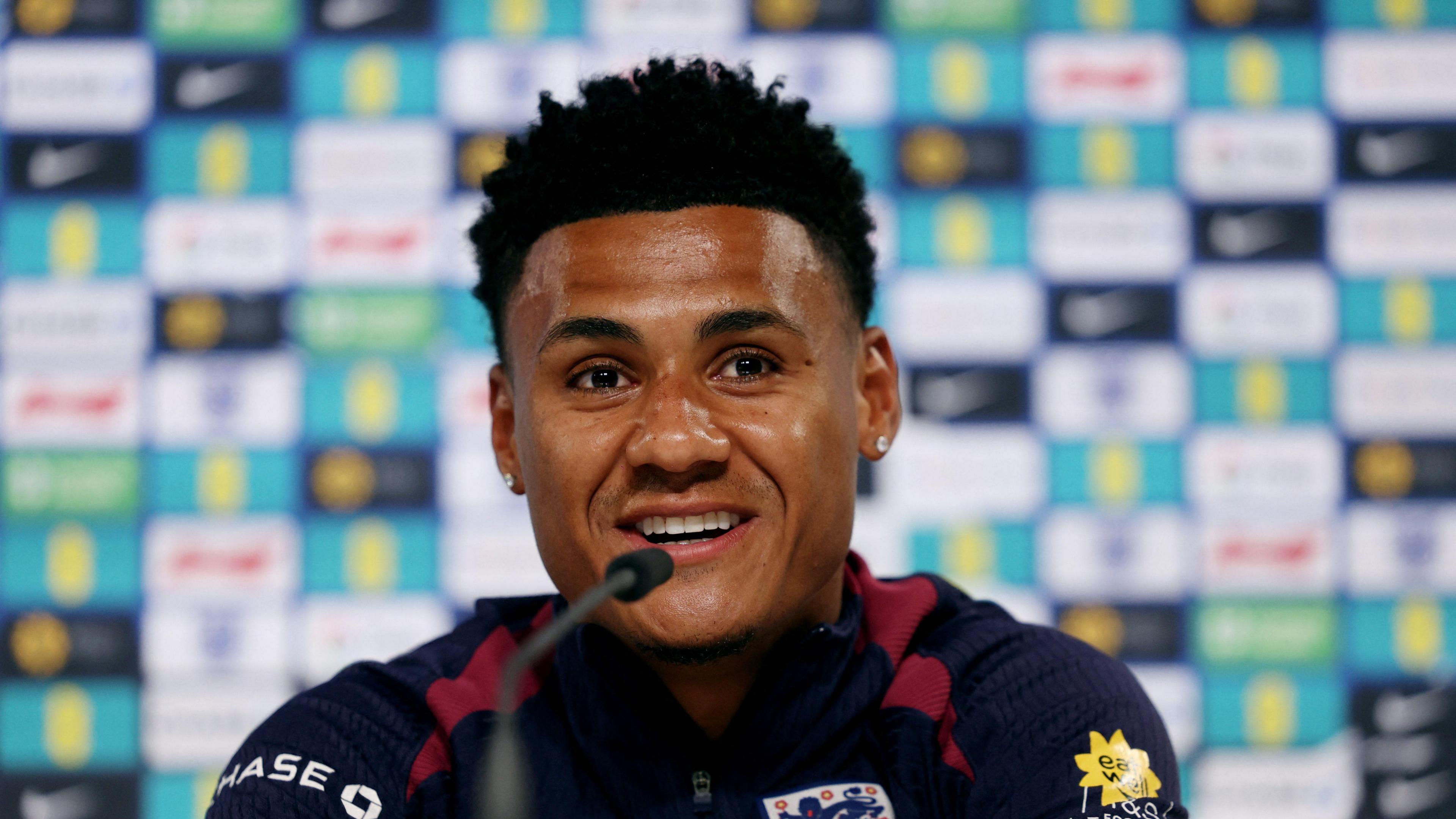
England's Euros star Ollie Watkins is one of the company's clients
'Hitting the sweet spot'
Mr Gooderham says the players who use his service "come and go", but he notices a big influx in custom during the season build up, to help players cope with vigorous training sessions and recovery.
The new Premier League season - which will feature his former employer, Ipswich Town - begins on 16 August, while the EFL Championship is back in action this weekend.
Trade increases by 70% in the pre-season period, he says.
"Without Covid I'm not sure it would have been possible to set up the business, it was just sort of a leap of luck that worked for us in terms of being able to be mobile with meals and work in a solitary confined place and produce them and stay safe that way. "
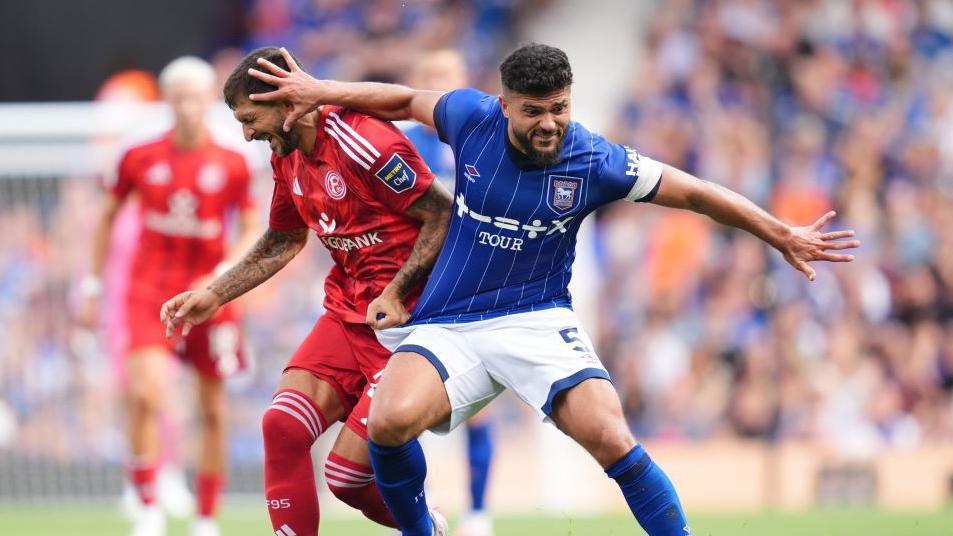
Ipswich Town captain Sam Morsy has used the meal prep service and loves enjoying a sweet breakfast treat
You will not find any clichéd chicken, rice and broccoli, that people might assume athletes only eat. Instead the 32-year-old says he and his team focus on creating restaurant quality food that provides a micronutrient breakdown to players that still tastes great.
The odd sweet treat is not off limits, just ask Ipswich Town's captain Sam Morsy who loves to enjoy the company's lemon overnight oats for breakfast.
"Sam Morsy's been using us on and off for the last two years, he has a real taste for the overnight oats we do, especially the lemon. I think it hits the sweet spot for him.
"Our overnight oats are really popular with athletes," Mr Gooderham says.
'Fuelling their bodies'
He believes the success of the business is down to players being able to trust they are getting exactly what they need, with no hassle about needing to start cooking after a long day of training.
"They can get in [from training] and don't need to think about cooking. They've got a nutritional meal there waiting for them. They whack it in the microwave and it's done in three to four minutes".
"Pre-season they're going through a dense period of high activity, training, so they're looking to fuel their bodies with the best nutrients possible," he says.
Mr Gooderham and his team use state-of-the-art technology to calculate the macro nutrients and calories of each recipe, so players know exactly what they're eating.
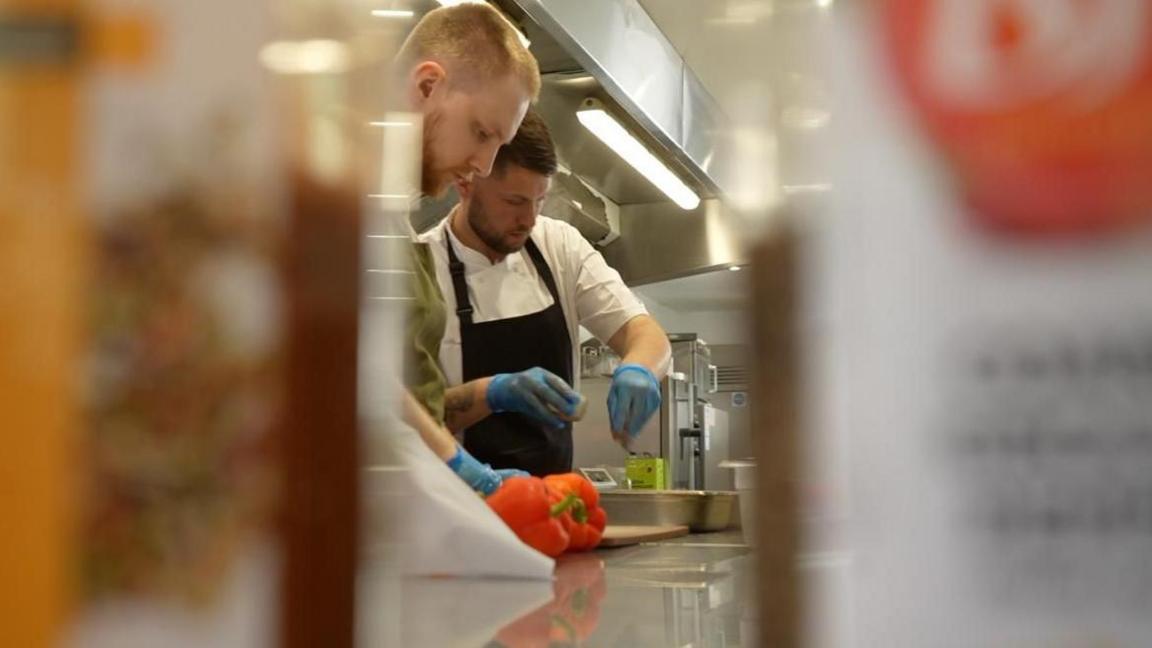
The team moved into an industrial unit to cope with demand
The company change the menu weekly, offering lots of alternatives from fish and lean meats, steaks and vegan and vegetarian options.
However, they have noticed patterns.
Sous chef Ryan Hickman says: "They usually don't eat red meat for digestion issues, because it takes longer to digest red meat before a game, so for about 24 hours before a game they won't want to eat red meat, so they're probably eating chicken."
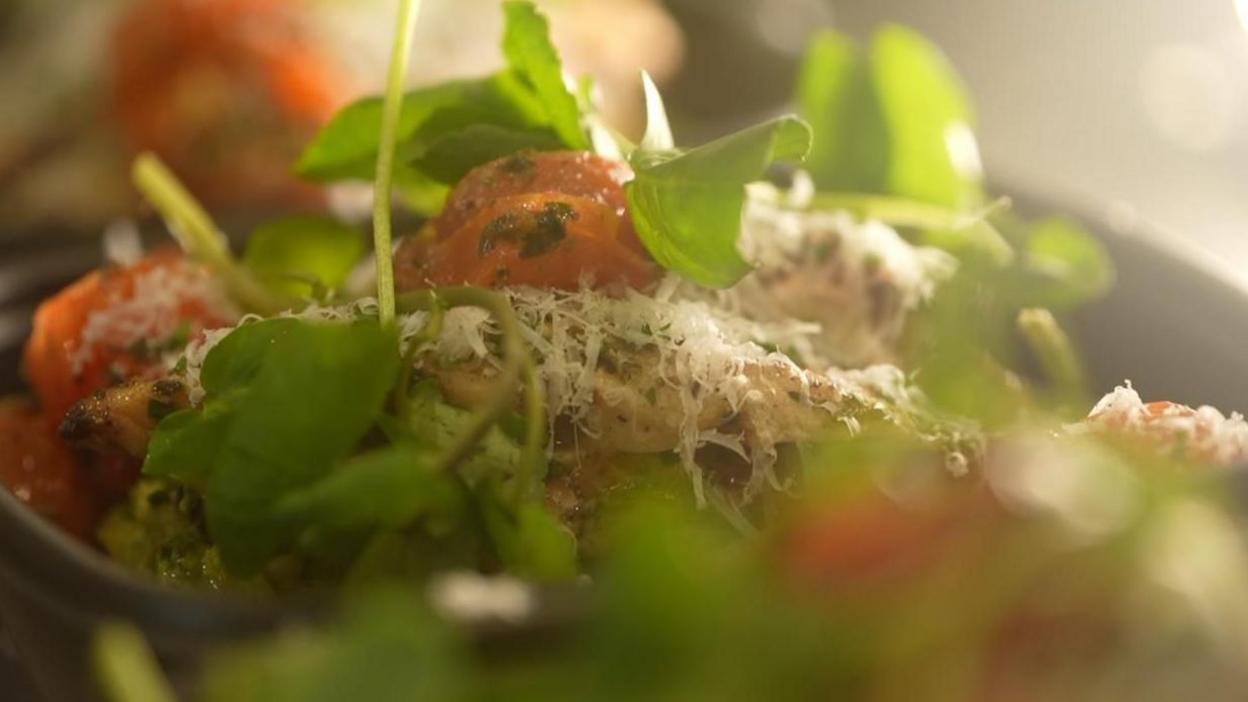
The team use technology to make sure players have all the right nutritional information about their meals
Get in touch
Do you have a story suggestion for Suffolk?
Follow Suffolk news on BBC Sounds, Facebook, external, Instagram, external and X, external.
Related topics
Related internet links
- Published6 May 2024
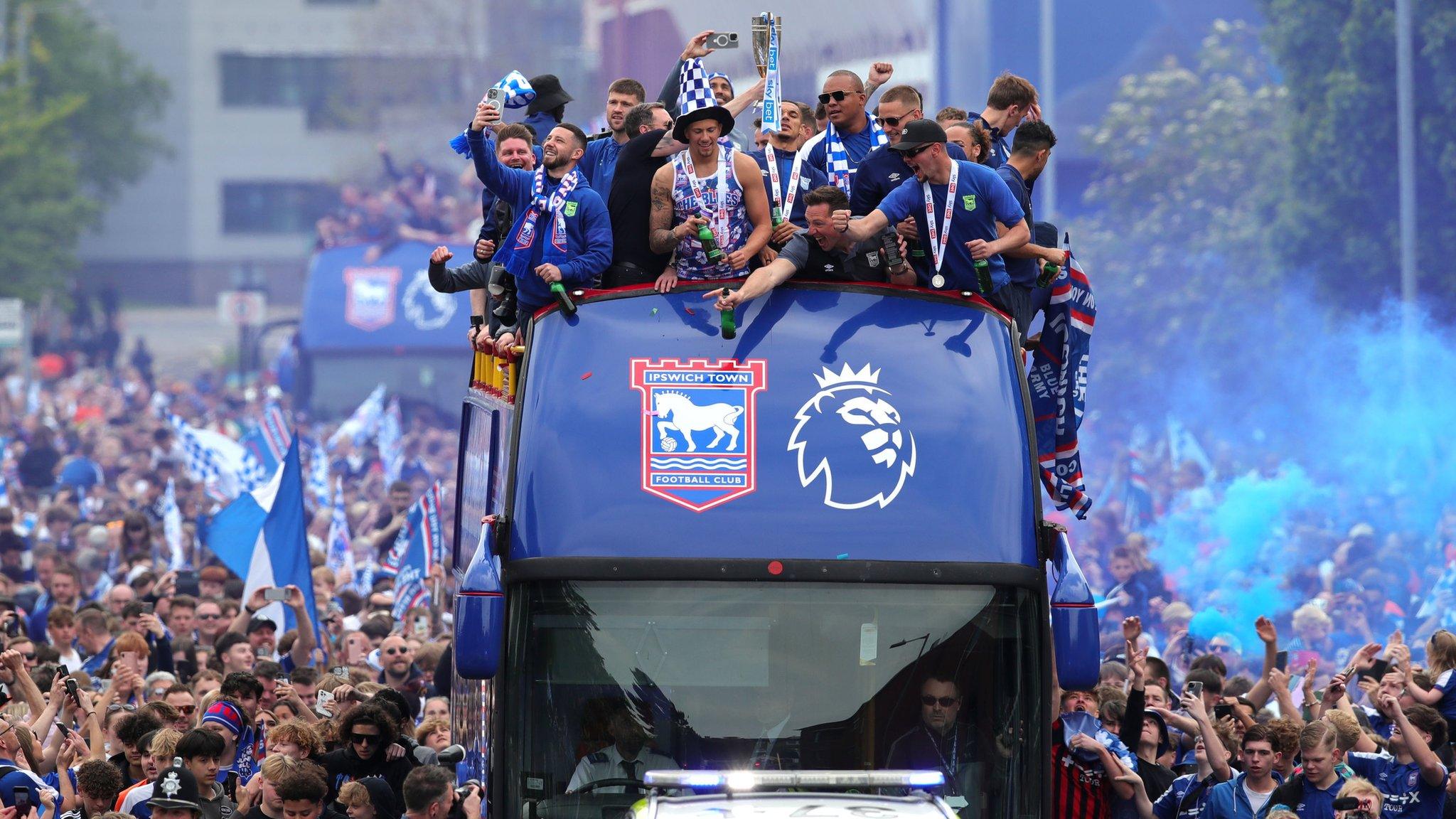
- Published3 August 2024
